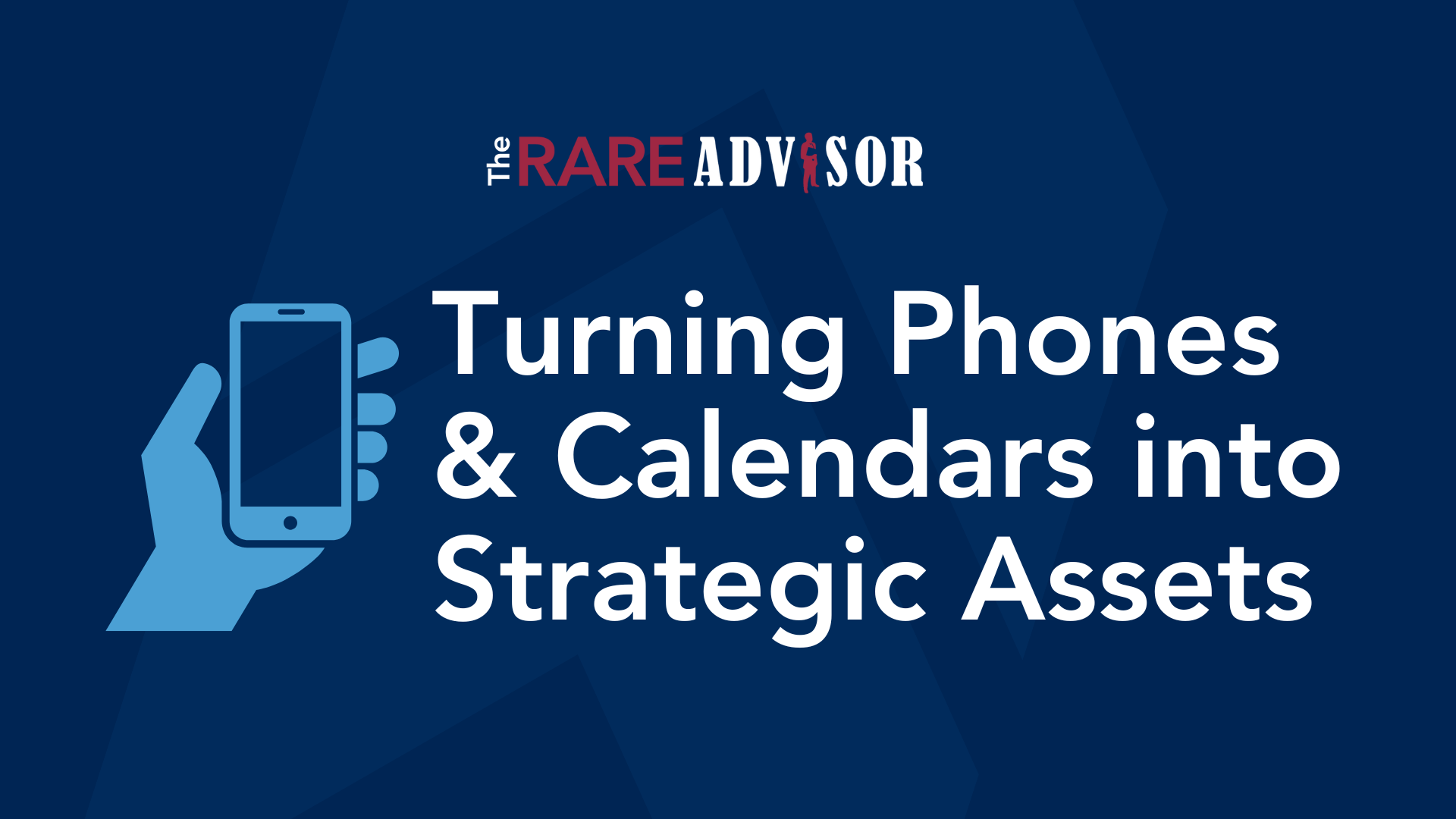Key Considerations When Changing Firms to Facilitate Succession Plans

There’s not a one-size-fits-all solution to advisors considering their succession plan. Regardless of age, advisors would benefit from starting with the end in mind. What is the ideal scenario for you?
The industry is buzzing with conversations around succession, mergers, and acquisition. It’s not surprising when you consider the demographics. The average age of a financial advisor today is 56 years old, according to FinancialPlanning magazine. And get this – Investment News reports that more than a third of US advisors plan to retire in the next 10 years. On top of that, this all comes as we’re staring down the “Great Wealth Transfer,” where a massive shift of assets is anticipated to take place as the Baby Boomer generation ages, involving an estimated $84 trillion transferring to younger generations by 2045.
We’ve all heard the joke about the cobbler’s kids having no shoes, but will our industry follow in the cobbler’s footsteps? The good news is that advisors are starting to take this problem more seriously; perhaps as a result of the heightened awareness being created by large broker-dealers and investment advisory firms who want to provide solutions to this glaring problem.
Let’s consider the benefits of planning ahead. Have you thought about wanting to reduce your administrative workload as you get older? Or perhaps taking more vacation time? With a well-crafted succession strategy for your financial practice, you can extend your career while enjoying more free time.
If M&A factors into your succession strategy, it’s crucial to view potential firms as future partners rather than just buyers. It’s all about finding the right match.
We talk about “right fit” here at USA Financial, and for good reason. You understand that each client is unique, and the same principle applies to advisor practices. No two are identical. Trying to force a mismatched pair is like trying to jam a square peg into a round hole – it just won’t work.
So, before you dive headfirst into any merger or acquisition deal, take time for thorough evaluation. This is about ensuring a smooth transition for your clients as well as securing your legacy and retirement strategy.
Here’s a few factors to consider when evaluating if another firm is a “right fit” partner for you:
- Investment Philosophy: Your clients have come to expect a certain investment approach and style. Is the firm you’re looking at compatible with your approach? Do they offer similar investment options? Is their platform flexible enough to accommodate your needs today but also help you navigate to where your practice may head in the future?
- Cultural Alignment: Be selective and ask some tough questions. What do you want to see in a buyer? How will it benefit your firm? Does the potential partner share your values to client service? How would they treat your clients and staff? Will you be viewed as a number or a partner?
- Technology, Systems, and Compliance: Look at what their tech capabilities are. Do they use something that can integrate with your existing tools? Do they have systems in place that complement or benefit your practice? What about their compliance record and approach? Are they forward thinking?
- Transition Timeline: Are you looking to step away from the business in the near future or stay on for a longer term? Do you already have a buyer lined up or will the firm help you identify a candidate? Will the firm provide some emergency contingencies if something were to happen before a deal goes through?
Remember, this decision impacts you, your staff, and your clients. Take your time and do your due diligence. Don’t hesitate to ask tough questions to find a true partner who won’t just buy your business but will value it and continue to build upon it.
If you’re looking to dive into this material further through a workshop. We’ve recently created an event around this topic called Predictable Zeros, where we spend a day here in Grand Rapids, Michigan, helping advisors define the outlook for their firm and stage a path for what’s next.
Author Info

Mark Mersman is the Chief Marketing Officer at USA Financial, joining the firm in 2004. He has held numerous roles within the company prior...
Related Posts

Access by Design: Turning Phones and Calendars into Strategic Assets
In this episode of The RARE Advisor, host Aaron Grady and practice management consultant Allan Oehrlein continue their discussion on time allocation by exploring what comes next: operationalizing structure across the entire advisory team. They break down why the phone is the “front door” to the firm and the calendar is the “engine room,” and how elite practices use standardized phone scripts, the strategic power of the word “unavailable,” intentional scheduling rules, and team empowerment to build consistency, capacity, and trust. Aaron and Allan outline how designed access—not unlimited access—creates scalability and a stronger client experience, while reducing reactivity, burnout, and advisor bottlenecks. They also offer practical challenges advisors can implement immediately to redesign their phone and scheduling processes in ways that elevate both team culture and enterprise value.

What’s Trending: The Love, Fear, and FOMO Driving February Markets
In this episode of the Trending Report, host Tyler Krzciok explores why February is the month when even the most disciplined investment intentions start to slip. After a confident and structured January, many investors begin questioning their strategy as headlines intensify, markets wiggle, and hot themes take over the conversation. Tyler breaks down why old habits reappear, how emotions like love, fear, and FOMO quietly steer decisions, and why formula‑driven processes help clients stay grounded when impulse tries to take over. If you're helping clients maintain clarity in a noisy environment, this episode shows how strong frameworks—not strong feelings—keep investors on track.

Growing Your Advisory Business: A Roadmap to Building AUM
The decade’s-long trend toward fee-based advisory business was validated as financial professionals faced the global pandemic in 2020. While professionals relying on new clients for revenue via transactional business found themselves in a predicament as the country went on lockdown and people stayed home, those with recurring revenue streams from assets under management (AUM) were able to navigate the choppy waters with far less revenue fluctuation in their businesses.

Access by Design: Turning Phones and Calendars into Strategic Assets
In this episode of The RARE Advisor, host Aaron Grady and practice management consultant Allan Oehrlein continue their discussion on time allocation by exploring what comes next: operationalizing structure across the entire advisory team. They break down why the phone is the “front door” to the firm and the calendar is the “engine room,” and how elite practices use standardized phone scripts, the strategic power of the word “unavailable,” intentional scheduling rules, and team empowerment to build consistency, capacity, and trust. Aaron and Allan outline how designed access—not unlimited access—creates scalability and a stronger client experience, while reducing reactivity, burnout, and advisor bottlenecks. They also offer practical challenges advisors can implement immediately to redesign their phone and scheduling processes in ways that elevate both team culture and enterprise value.

What’s Trending: The Love, Fear, and FOMO Driving February Markets
In this episode of the Trending Report, host Tyler Krzciok explores why February is the month when even the most disciplined investment intentions start to slip. After a confident and structured January, many investors begin questioning their strategy as headlines intensify, markets wiggle, and hot themes take over the conversation. Tyler breaks down why old habits reappear, how emotions like love, fear, and FOMO quietly steer decisions, and why formula‑driven processes help clients stay grounded when impulse tries to take over. If you're helping clients maintain clarity in a noisy environment, this episode shows how strong frameworks—not strong feelings—keep investors on track.

Growing Your Advisory Business: A Roadmap to Building AUM
The decade’s-long trend toward fee-based advisory business was validated as financial professionals faced the global pandemic in 2020. While professionals relying on new clients for revenue via transactional business found themselves in a predicament as the country went on lockdown and people stayed home, those with recurring revenue streams from assets under management (AUM) were able to navigate the choppy waters with far less revenue fluctuation in their businesses.

